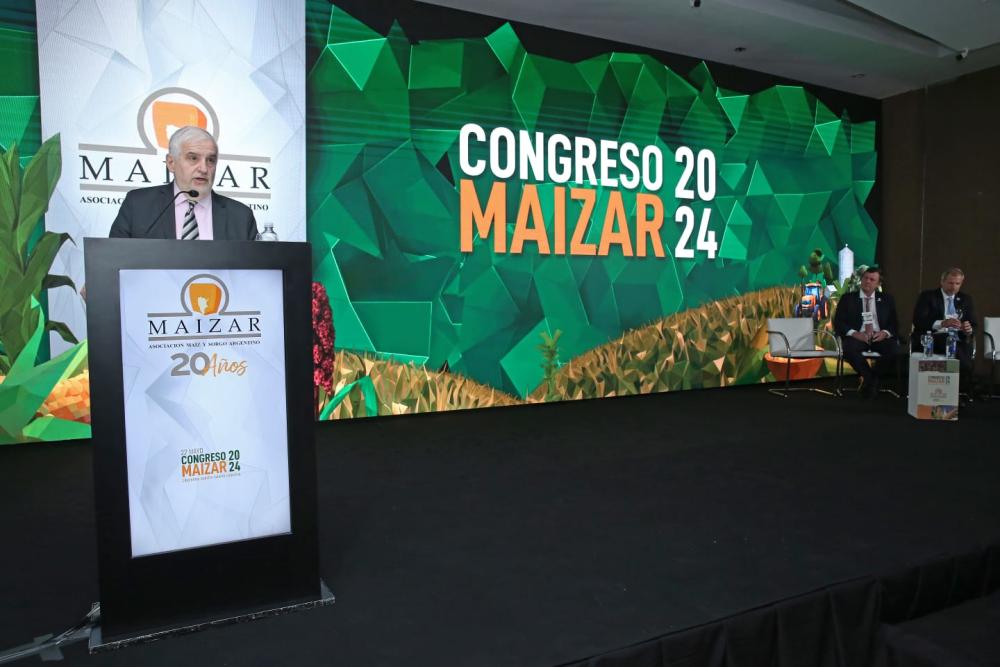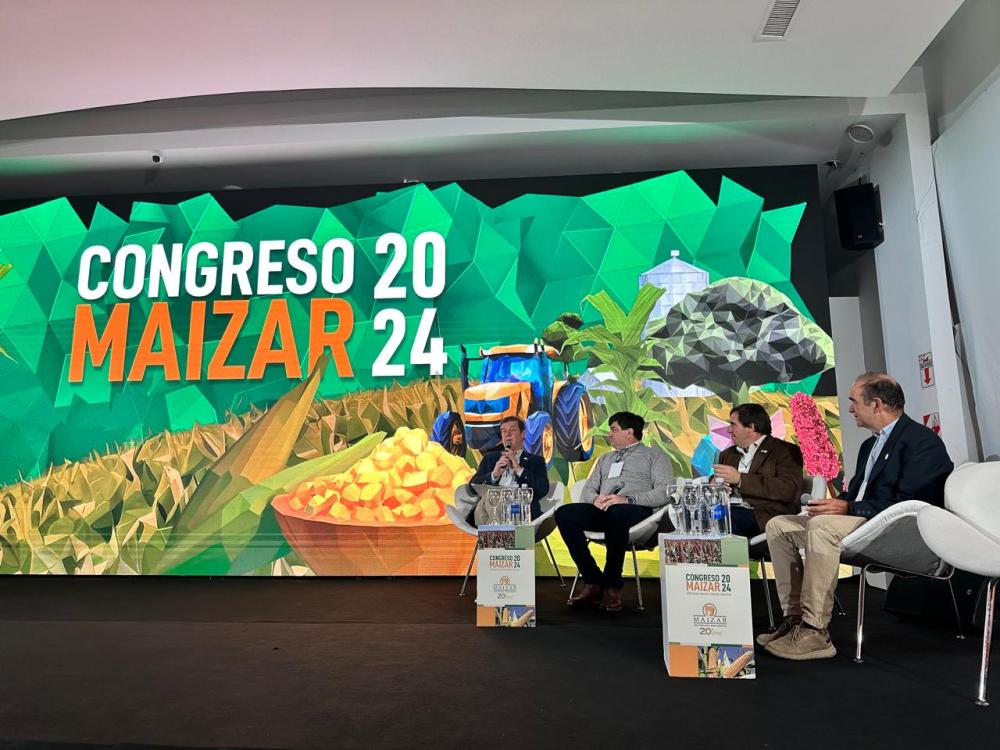Argentine corn and sorghum producers underscore the importance of innovation in addressing agricultural challenges, at a massive congress in Buenos Aires with participation of IICA

Buenos Aires, 23 May 2024 (IICA) - Members of the scientific, productive, commercial, industrial, food, and export chains of Argentine corn and sorghum underscored the value of innovation in responding to the challenges facing the sector, at a massive event held in Buenos Aires with the participation of the Inter-American Institute for Cooperation on Agriculture (IICA).
Over 3,000 people attended the annual congress of MAIZAR, the Argentine Corn and Sorghum Association, which served as a forum for debate and exchange of ideas and experiences under the theme "Unleashing Our Collective Talent."
The topics discussed in three simultaneous sessions included the environmental sustainability of Argentine corn, intelligent crop management in the context of climate change, the influence of corn on the national economy, tools for combating pests and diseases, and ways to ensure that new technologies reach rural areas.
Opening remarks were given by Argentina’s Secretary of Bioeconomy and Pro Tempore President of the Southern Agricultural Council (CAS), Fernando Vilella, and the event included the participation of speakers such as IICA Representative in Argentina, Fernando Camargo, and IICA Representative in Brazil, Gabriel Delgado.
“We are part of a wonderful network that generates value in every corner of our beloved Argentina. We must spread this optimism, especially to the younger generations, so they can make an informed decision and choose to stay in the countryside and in Argentina,” said the President of the MAIZAR Congress, Ignacio Garciarena.
He also invited attendees to discuss “the most relevant topics, from seeds, soils, inputs, and water, to conversion into animal proteins, bioenergy, and biomaterials; including regulatory frameworks, technological advancements, the international context, infrastructure issues, and environmental impact topics.”
Agriculture 4.0
In a panel dedicated to the implications of so-called Agriculture 4.0 and the vision of leading institutions, Gabriel Delgado stressed that when discussing innovation in agricultural activities, it’s not just about new technologies but also about how these technologies can reach producers and be more effective.
"There needs to be an appropriate and updated regulatory framework, and attention must also be given to training producers and ensuring access to credit," said Delgado, who stressed the importance of public goods that must be provided by the State to create the conditions for development and knowledge creation.
Similarly, Tomás Oesterheld, Vice President of the Argentine Association of No-Till Farmers (AAPRESID), an IICA ally in promoting sustainable rural practices, pointed out that "new technologies should be seen as tools that do not solve everything at the push of a button; the solutions must come from the people using new technologies."
There was also a call to view the three pillars of sustainability—economic, social, and environmental—in a balanced manner and to discard the notion of a single production model that is behind some trade restrictions. "There is no single way to produce because biology is very complex. There are no unique models, not even on the same fam in the same country," said Jorge Sáenz Rozas, President of CREA, a movement of Argentine agribusiness entrepreneurs promoting productivity and sustainability improvements through experimentation.
Fernando Camargo, IICA Representative in Argentina, shared a panel discussing the present and future of international food trade with Victoria Lovenberg, Head of the Commercial Section of the European Union (EU) in Argentina.

Camargo noted that agriculture, in addition to its crucial role in global food security, is the productive sector that can contribute the most to the current energy transition, given its significant contribution to biomass for the development of bioenergies. Camargo and Lovenberg exchanged views on the imminent entry into force of EU Regulation 1115/2023, aimed at combating deforestation outside Europe. "This regulation was adopted due to pressure from European citizens, as our continent is a massive consumer of products that generate forest loss and biodiversity destruction," justified Lovenberg.
Camargo argued that Brazil and Argentina will be among the countries most affected by this legislation due to their strength as agricultural commodity producers. He noted that despite the challenges for exporting producers, the regulation also presents an opportunity to add value.
More information:
Institutional Communication Division.
comunicacion.institucional@iica.int